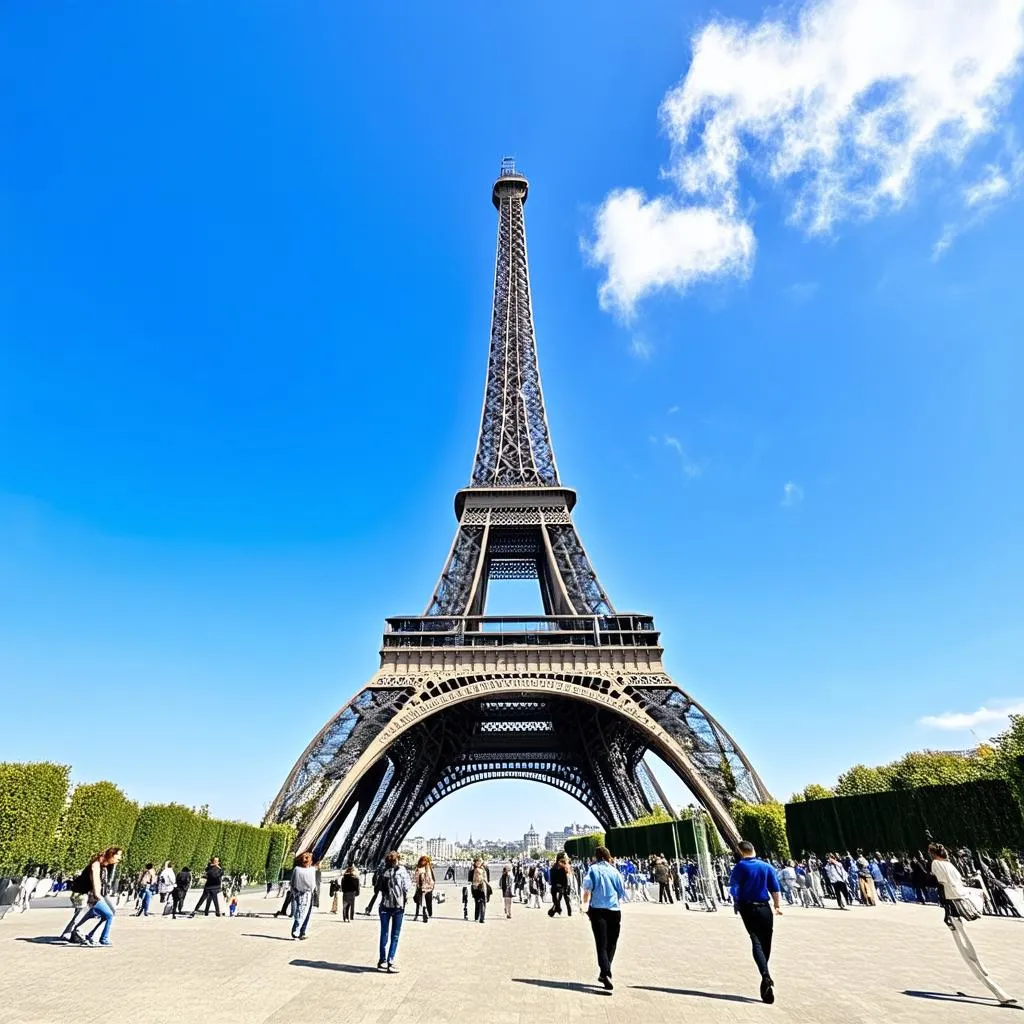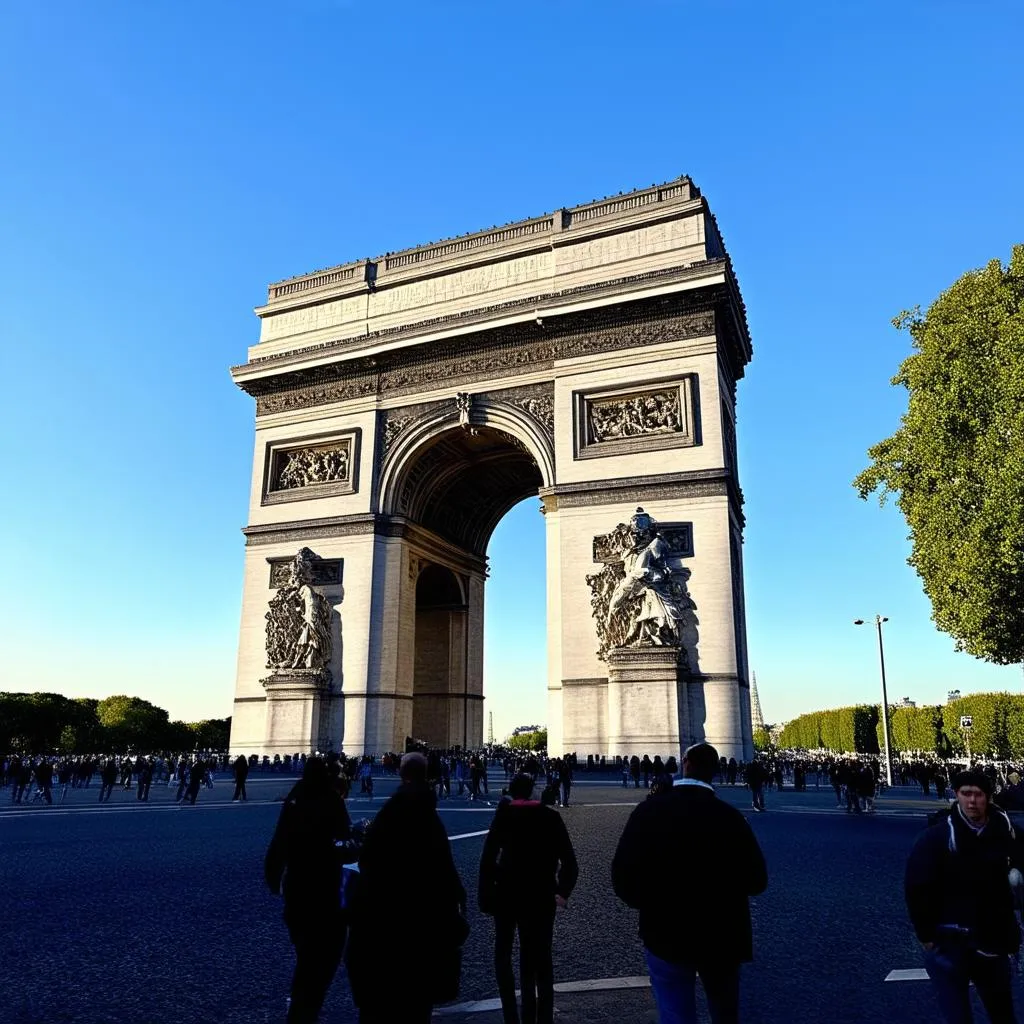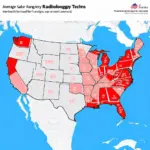“Paris is always a good idea,” Audrey Hepburn famously said in the classic film Sabrina. But is it really a good idea to travel to France right now? If you’re dreaming of strolling down the Champs-Élysées, marvelling at the Eiffel Tower, or exploring the lavender fields of Provence, you’re probably wondering about the current safety situation.
This comprehensive guide will address your concerns about safety in France and provide all the information you need to plan an unforgettable and secure trip.
Current Safety Situation in France
France is generally a safe country for travelers. However, like any other popular destination, it’s essential to be aware of potential risks and take necessary precautions.
The overall crime rate in France is relatively low, and the French authorities are committed to ensuring the safety of residents and tourists. Tourist areas are generally well-patrolled, but petty crime such as pickpocketing can occur, especially in crowded areas like metro stations and tourist attractions.
Tips for Staying Safe in France
Whether you’re wandering through the charming streets of Montmartre or soaking up the sun on the French Riviera, these tips will help you stay safe:
- Be aware of your surroundings: Pay attention to your belongings, especially in crowded places.
- Keep valuables secure: Avoid flashing large amounts of cash and use the hotel safe to store your passport, extra cash, and expensive jewelry.
- Learn basic French phrases: Knowing a few basic phrases like “bonjour,” “merci,” and “au revoir” can go a long way in enhancing your interactions with locals.
- Use reliable transportation: Opt for reputable taxi companies or ride-sharing services. When using the metro, be alert to your surroundings.
- Stay informed: Check travel advisories and local news for any updates or potential disruptions.
Navigating COVID-19 in France
While France has lifted most COVID-19 restrictions, it’s essential to stay updated on the latest guidelines and recommendations. Check the French government website or your local embassy’s website for the most current information on testing requirements, vaccination certificates, and any remaining health protocols.
Planning Your French Adventure
Now that we’ve covered safety, let’s move on to the exciting part: planning your French adventure!
Choosing Your Destination
France offers a diverse range of experiences, from the romantic ambiance of Paris to the sun-kissed beaches of Nice. Here are some popular destinations:
- Paris: The City of Lights needs no introduction. From iconic landmarks to world-class museums, Paris is a feast for the senses.
- Nice: Located on the French Riviera, Nice is famous for its stunning beaches, vibrant nightlife, and picturesque old town.
- Bordeaux: Wine lovers rejoice! Bordeaux is a paradise for oenophiles, with rolling vineyards and charming chateaux.
Budgeting for Your Trip
France can be an expensive destination, but there are ways to travel on a budget. Consider these tips:
- Travel during the shoulder season: Spring (April-May) and fall (September-October) offer pleasant weather with fewer crowds and lower prices.
- Take advantage of free activities: Many museums offer free admission on certain days or times.
- Stay in budget-friendly accommodations: Explore options like hostels, guesthouses, or apartment rentals.
Embracing French Culture
To truly immerse yourself in the French experience, embrace the local culture:
- Indulge in French cuisine: From buttery croissants to rich cheeses and delectable wines, French gastronomy is a delight for the taste buds.
- Learn about French history: Visit historical landmarks, museums, and monuments to delve into France’s rich past.
- Attend local events: Check for festivals, markets, and concerts happening during your visit.
FAQs About Traveling to France
Is it safe to travel to Paris right now?
Paris, like any major city, has its share of petty crime, but overall, it is a safe city for travelers. By taking common-sense precautions and staying aware of your surroundings, you can have a safe and enjoyable trip.
Do I need a visa to travel to France?
If you’re a citizen of a country within the Schengen Area, you can travel to France without a visa for up to 90 days. If you’re from a country outside the Schengen Area, you may need a visa. Check with the French embassy or consulate in your home country for specific requirements.
What is the best time to visit France?
The best time to visit France depends on your interests and preferences. Spring and fall offer pleasant weather and fewer crowds, while summer is peak season with warm temperatures and plenty of sunshine. Winter can be charming, especially if you’re interested in skiing or experiencing the Christmas markets.
How much money do I need for a trip to France?
The cost of a trip to France varies depending on your travel style, destination, and duration. On average, you can expect to spend around €100-€200 per day per person for budget-conscious travel, €200-€400 for mid-range travel, and upwards of €400 for luxury travel.
Embrace the French “Art de Vivre”
France, with its rich history, captivating culture, and breathtaking landscapes, is a destination that captures the imagination. While safety concerns are understandable, by staying informed, taking necessary precautions, and embracing the French “art de vivre” (art of living), you can create unforgettable memories that will last a lifetime.
For more travel tips and inspiration, explore our website: https://travelcar.edu.vn/is-france-safe-to-travel-to-right-now/
Do you have any other questions about traveling to France? Share your thoughts and experiences in the comments below!
 Eiffel Tower Paris
Eiffel Tower Paris
 Lavender Fields Provence
Lavender Fields Provence
 Arc de Triomphe Paris
Arc de Triomphe Paris

